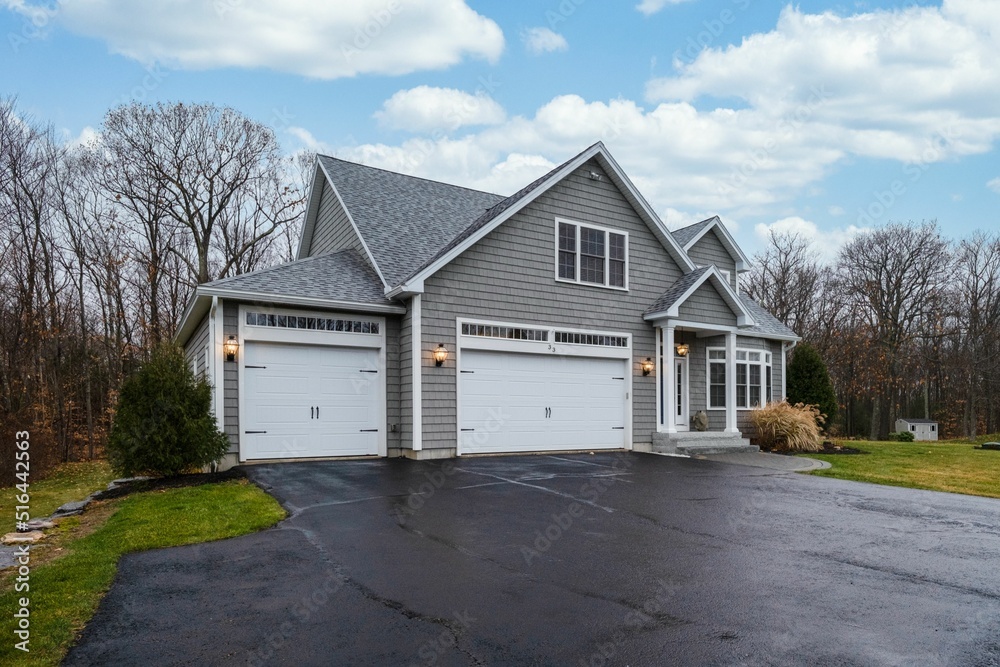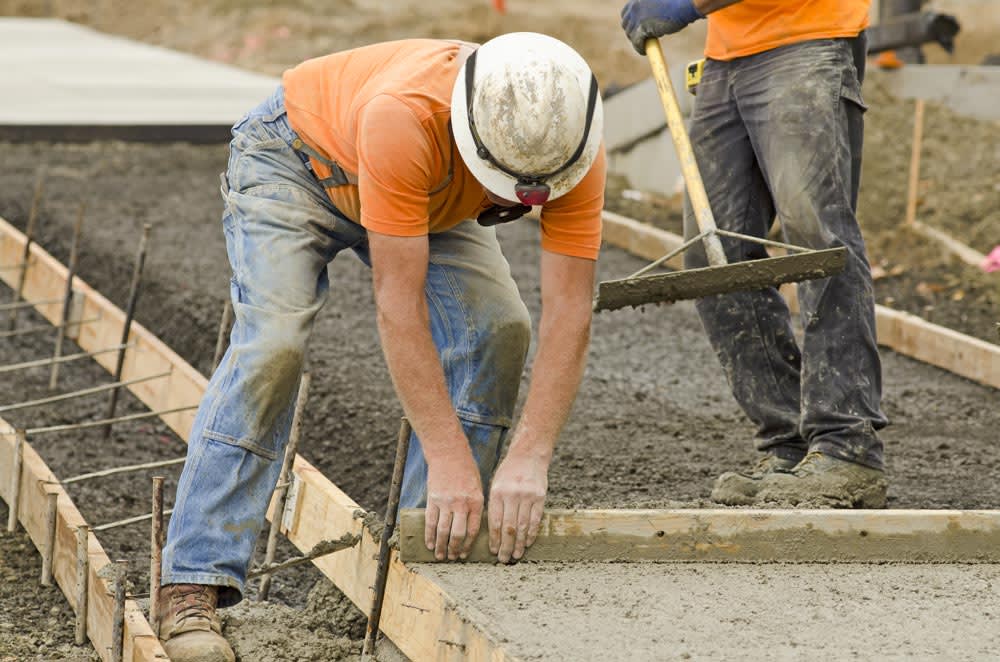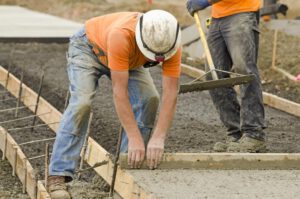Concrete is an extremely versatile material used by building and design professionals everywhere. It offers several unique perks for driveways that are not found with other materials like asphalt. A reputable contractor can excavate, prepare, and pour the concrete for your driveway in a couple of days. It saves you time and money. Visit https://drivewaypavingcharleston.com/ for more details.

Concrete is a highly durable material that can last 50 years or more when properly maintained. It is a significant advantage over other paving materials, particularly asphalt, which lasts about 20 to 30 years. Concrete can also withstand heavy loads, making it ideal for people who regularly park large vehicles in their driveways.
Concrete driveways are also less prone to cracking than other paving options. It is because they undergo curing, which hardens the surface. It makes it more resistant to damage from heavy loads and temperature changes. However, it is still possible for concrete to crack over time if the construction isn’t done properly. For example, the contractor may need to properly mix or pour the concrete or allow it to dry long enough. The concrete could also be exposed to too much sunlight or freezing temperatures, which can cause it to crack.
Another factor that contributes to a concrete driveway’s durability is the base and subgrade quality. These materials should be free of organic debris and soft pockets to avoid damage to the concrete. It is also important for contractors to install control joints at proper spacing to limit the appearance of random cracks.
While concrete is more expensive than other paving materials, it is highly durable and offers several customization options to enhance the visual appeal of your home’s exterior. You can stain, stamp, or engrave the concrete for a unique finish that elevates your home’s first impression. This customization is an attractive feature that can boost your property value when it comes time to sell.
When it comes to enhancing the look of your home, your driveway is one of the best places to start. A beautiful concrete driveway can boost the curb appeal of your entire house and help you feel more at home every time you drive in.
Whether you choose a traditional plain gray concrete surface or something more colorful, a concrete driveway can be designed to complement your home perfectly. Concrete contractors can stamp, stain, or color the concrete to create various looks. Many styles mimic the appearance of pavers, bricks, slate tiles, or stone to give your driveway a unique look. You can even choose a more gravelly, rough appearance with exposed aggregate concrete.
In addition, you can also choose a curved concrete driveway to add a bit of extra flair to your home’s entrance. This style works especially well if you have a long, winding driveway or if your garage isn’t directly attached to the front of your home.
Aside from being an aesthetically pleasing option, a concrete driveway is more environmentally friendly than asphalt. It requires less energy to produce and install and uses natural ingredients instead of petroleum products. Plus, concrete absorbs less heat from the sun and reflects more light than its asphalt counterparts to stay cooler during hot weather. In the long run, this can lead to substantial savings for homeowners.
Concrete is a durable material that can be made into various decorative styles to suit your tastes. You can customize the look and feel of your driveway with stamped or colored concrete, slate, tile, stone, or exposed aggregate. The flexibility of concrete allows it to match a broad range of home landscaping plans and enhance property values.
Unlike asphalt, made from nonrenewable petroleum products, concrete is composed of natural rock and sand mixed with cement. Concrete can also be made from recycled materials, including fly ash, ground blast furnace slag, and silica fume byproducts of power plants, steel mills, and other industrial processes. It helps to reduce the need for raw materials and keeps waste out of landfills.
A concrete driveway can be designed to replicate the appearance of other paving materials, such as brick or cobblestone. Stamped concrete is an effective way to achieve this effect, as it imitates other materials’ color, shape, and texture. Alternatively, you can opt for an aggregate concrete finish that gives your driveway a gravelly, rough surface.
Another benefit of a concrete driveway is that it’s lighter in color than most other paving materials, making it kid- and pet-friendly and barefoot-friendly. It means you can spend more time outdoors without worrying about your kids or pets slipping on a dark surface or getting burned by the sun. Plus, a light-colored driveway can add significant resale value to your home. It makes it a smart investment, even if you plan on selling your property in the future.
Concrete is a durable material that withstands many years of heavy vehicle traffic without cracking. It is also affordable for homeowners who want to improve the look of their home’s exterior and boost curb appeal.
With a little maintenance, concrete driveways can last for many years and will not need to be replaced like other materials. Concrete does not need resealing as frequently as asphalt, but reapplication of sealant every three to five years will protect the surface from damage.
Regular cleaning requires a broom and garden hose to keep dirt and debris from building up on the surface. A pressure washer can remove stubborn stains and is recommended for occasional deep cleaning. If a patterned imprinted concrete slab has been used, weeds may grow through the joints between the paving bricks, but regular sweeping and de-weeding spray should prevent their growth.
Although concrete is a sturdy material, it is vulnerable to heavy vehicle impact on the edges, so cars and trucks must be parked far from the driveway’s edge to prevent surface damage. It is also important to avoid renovation projects that require heavy equipment and trucks, as they can damage concrete surfaces.
Concrete driveways can be poured into various shapes and colors to suit any landscaping style, including curved designs. They can also be stamped to mimic the look of stone, slate, tile, and more. Aggregate concrete is another popular design option that can add texture and color to the finished product. Choosing a reputable contractor to design and install a new concrete driveway will ensure the proper steps are taken during construction to minimize the risk of future repairs.
Concrete can withstand heavy loads without warping or flexing, making it an ideal material for a driveway. This durability can also add value to your home, which may help you recoup some or all of the cost of your new concrete driveway when you sell.
While you can install a concrete driveway yourself, it’s best to hire a professional contractor to do it for you. Pouring concrete on-site is labor-intensive and requires commercial-grade equipment, trucks, and multiple concrete containers. Concrete contractors can build you a standard driveway in just a few days with minimal disruption to your yard and landscaping.
Your concrete contractor should work with you to determine the dimensions of your new driveway, as these will directly inform how much concrete is ordered. It’s important to settle on these dimensions early on to avoid delays or costly changes.
Once the concrete is poured, your contractor should flatten it using wood or magnesium bullfloat. They should float the concrete in a smooth arching motion, starting at one end of the slab and moving forward consistently across it until the surface is flat and consistent. Once the concrete is smoothed, your contractor should cut control joints into the driveway every four inches. These will allow the concrete to expand and contract evenly, preventing long-term damage.
To finish off your concrete driveway, your contractor can apply a concrete sealer to protect it from weather and traffic wear. It will keep your concrete looking great for years and help prevent stains and cracking.



